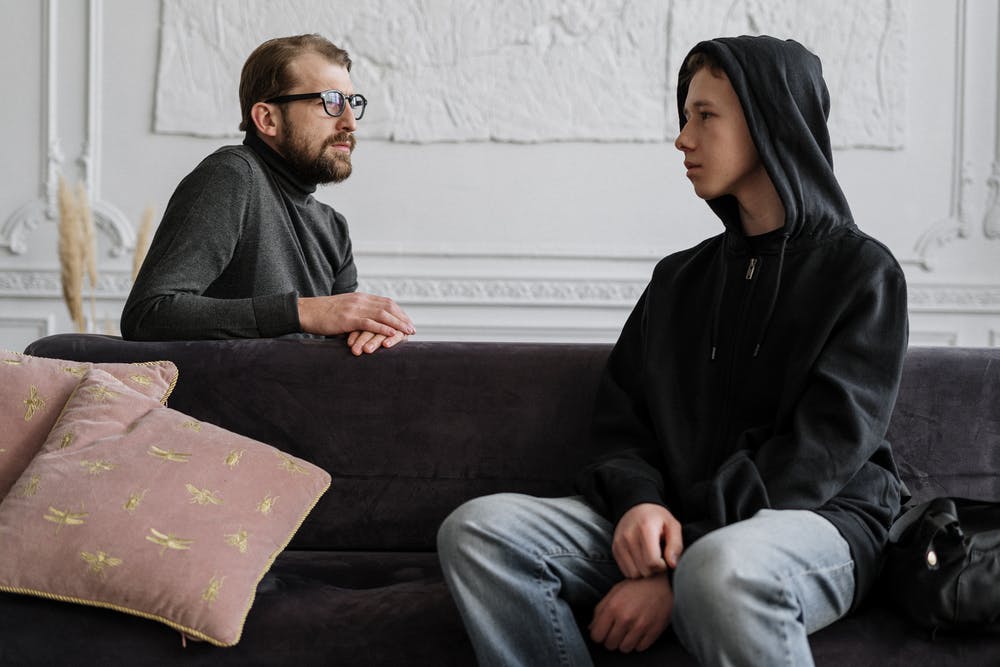
Substance Abuse and Addiction Counseling
Counseling for Substance Abuse and Addiction

Addictions can take many forms. Substance abuse may include a physical or psychological dependence on alcohol or another drug. In addition to physical symptoms, addictions occur when we feel a compulsive need to engage in activities that consume us or have become destructive. Maria Droste Counseling Center in Denver, CO, offers in-person and online counseling for addiction recovery.
Currently, 40 million people ages 12 or older struggle with substance abuse or addiction in the US. This makes addiction a larger health issue than heart disease, diabetes, or cancer. Addiction affects a large portion of the population, but help is available in the form of counseling. Treatment that is focused on resolving an addiction is often referred to as recovery to emphasize the ability that each person has to overcome their struggles and to live a healthier, more fulfilling life.

We offer affordable online and in-person counseling services for addiction.
Contact us today if you’re struggling with substance abuse or addiction. Our team will match you with a counselor that is right for you. Let us know if you have any specific preferences, including gender, payment type, approach to services, or other criteria.
Types of counseling and treatments for addiction
Of course, many of us can occasionally indulge in certain activities or use alcohol or prescription drugs without a problem. It is when they begin to interfere with our lives that they become problematic. In other words, addiction happens when use turns into abuse, and negatively affects many areas of life including health, relationships, financial responsibility, and spirituality.
The things we can become addicted to may include:
| Substances | Activities |
| Alcohol | Gambling |
| Drugs | Porn |
| Prescription Drugs | Internet Games |
| Food | Exercise |
Different approaches to recovery:
Inpatient Treatment
This consists of a combination of counseling and physical health management that usually occurs in a hospital or managed care setting. Inpatient intervention is important when the individual has physical components to their addiction and experiences symptoms as a result of detox, as this can lead to serious health complications. People detoxing from alcohol or other substances should consult a doctor in regard to the safest options for recovery.
Outpatient Treatment
Outpatient treatment refers to recovery options that happen outside of a hospital. This can include individual or group therapy, though many people recovering from addictions benefit from a combination of the two. Outpatient treatment works best for people who have already detoxed from any substances or are managing recovery from non-physical addiction. Services offered at Maria Droste Counseling Center fall under this type of treatment.
12-Step Programs
Many people choose to engage in 12-step groups such as Alcoholics Anonymous in addition to formal treatment in an inpatient or outpatient setting. In general, these groups are open to anyone and provide a safe environment to understand and overcome addiction by learning from others and sharing your own experiences. We suggest utilizing these groups in combination with therapy.
Being a part of a group is vital
Recovery doesn’t happen in a vacuum; unquestionably, being part of a group is vital. Connection is imperative to helping reduce the isolation that occurs in addiction. There are many options for support and connection in the recovery community. These include:
- Women for Sobriety (WFS) focuses on the unique challenges faced by women in recovery.
- SMART Recovery empowers individuals to recover from addiction, rather than be “in recovery” with a lifelong disease.
- Secular Organizations for Sobriety (SOS) and LifeRing Secular Recovery (LSR) offer an approach that is not based on turning one’s life over to a higher power and rely on human efforts rather than divine intervention.
- Celebrate Recovery (CR) is a Christian-based support group started by Saddleback Church. This group follows its own 12-step approach that incorporates the bible and addresses all types of addictive behaviors.
How to help an addicted friend or relative?
To begin with, knowing the signs of substance abuse and addictions can help to identify whether a loved one may be using drugs and risking harmful consequences. Substance abuse can impact the friends and relatives of the person who is struggling, so it is important to take care of your mental health as well when you are concerned about a loved one.
Signs of addiction include:
- Inability to stay away from the substance or behavior
- Feeling a loss of control
- Neglecting responsibilities such as work or school due to the source of addiction
- Withdrawing from others
- Engaging in risky behavior
- Feelings of guilt related to use of the substance or behavior
When you or your loved ones are struggling with addiction but you don’t know who to turn to, Maria Droste Counseling Center can offer the help that you urgently need. For over 30 years, Maria Droste Counseling Center of Denver has been helping people get back on their feet and recover from addiction.

We offer affordable online and in-person counseling services for addiction.
Contact us today if you’re struggling with substance abuse or addiction. Our team will match you with a counselor that is right for you. Let us know if you have any specific preferences, including gender, payment type, approach to services, or other criteria.
READ MORE
